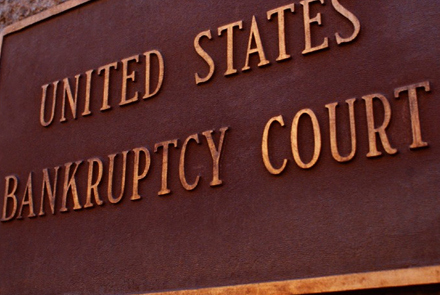I have struggled at times wondering why some people, especially those who identify themselves as Christian, are so judgmental about wealth and bankruptcy. I hope this post will offer grace and understanding to someone else going through bankruptcy, and enlighten those who look down on those of us who have experienced the highs and lows of financial wealth.
The simple truth is some people are so poor all they have is money, and health is really wealth.
As I wrestle with this topic, I am continually drawn back to the spiritual parallel that God has placed in my heart. We as Christians, being sinners unable to pay our debt, go to God through Jesus Christ to ask for forgiveness. I truly believe that at the foundation of the Christian faith is what I call spiritual bankruptcy.
Deep down, we often ask ourselves, does our life have a purpose? Do we have a spirit? Is there something greater than we can comprehend all around us? I believe that digging into these questions through Bible study, contemplation, meditation, and prayer can bring an incredible sense of calm, peace, and even joy that can be difficult to find in other avenues – and impossible to find with just money.
The more of these elements you dig into and discover in your life, the lesser the role of money, materialism, and spending occupies. In the end, you’ll find that you’re no longer chasing money, but that instead money is following you on the path to a much better life. Today, I realize something much more compelling. If you’ve read my testimony, you know that I now share that money is not the most important thing in life. If you put your energy and time into other things more important than money, wealth will always follow. It will find a way to work.
If we can accept the premise that God can forgive us for our spiritual debt, why can we not offer grace to those who face financial bankruptcy? Even the Lord’s prayer (Matthew 6:9-13) makes reference to the forgiveness of debts. Of course, many will say this is not a financial debt and respond with Psalm 37:21 The wicked borrow and do not pay back.
I am not a theologian, but I can not believe that somehow financial shortcomings, even those that were the result of outright sin or bad decisions, can not be forgiven. Not forgiving those who have had financial failings seems like a clearly un-biblical stance, but one that still seems to make the rounds today. In my view, the wicked referenced in Psalms 37 would be today’s version of those committing financial fraud, or borrowing with no intention of repaying, or not repaying a debt when you have the ability to do so, seems like the principle here.
I confess, there was a time in my late thirties and early forties that I looked around at my new house, cars, suits, six figure income, etc… and thought I was financially invincible. I was very prideful and believed that things would just keep getting better. Despite losing most of my material wealth back then, I have to concede that I like the version of myself of today much more than the old one.
As Christians, we are promised that all things can be used for good for those that love God and those that are called according to His purpose (Romans 8:28). I believe that God has used my bankruptcy to change me for the better. This is now another opportunity for me to relate with those facing life’s most difficult financial challenges and to continue to keep my heart soft when pride threatens to return.
Here’s what I have learned since filing for Chapter 7 Bankruptcy in 2009:
Jesus valued people more than things and we should too.
God created us to love people and use things, but a materialist loves things and uses people.
If your eyes are fixed upward, you can’t look down on others.
Jesus did not extol poverty as some great virtue. In fact, only one time did He tell someone—the rich young ruler—to sell his possessions and give to the poor. I think it was because that man was possessed by his possessions. Because when Jesus said, “If you want to be perfect, go, sell what you have and give to the poor, and you will have treasure in heaven; and come, follow Me” (Matthew 19:21), the Bible says that he went away sorrowful. It was a test to see whether God was more important to him than his things.
Money is not the root of all evil; the love of it is.
The problem with wealth is not in having it. It is how we get it. It is how we guard it. And it is how we give it.
Our financial status is a temporary situation, whereas; our spiritual status is an eternal condition.
Just as the world has an economic system, God has an economic system. However, God’s economy does not operate under the same principles as the world’s economy.
The world’s economy is based upon core beliefs like: wealth brings security; power is important; and this life is all there is.
God’s economy is based upon core beliefs like: there is a God who created the universe; security comes from God; generosity matters, and we should make our financial decisions based upon an eternal perspective.
Following Jesus is not a religion, it’s a relationship. We get to know Him by reading the Bible, praying and attending church. As you grow in your faith, Jesus will reveal more about who He is and the purpose that He had in mind for your life when He created you.
So the principles for Biblical economics come from God — not man. Many of God’s principles do not make sense to the world, but they make a lot of sense to devoted followers of Jesus Christ. The world thinks, “why would anyone want to give a portion of their income away? That’s foolish” But, those with an eternal perspective know that giving a portion of their income is a wise thing to do.
That’s the way it works in God’s economy. It runs absolutely contrary to the world’s principles.
“The one who gives to the poor will not be in need, but one who turns his eyes away will receive many curses.” Proverbs 28:27
In God’s kingdom, the giver becomes the receiver.
The successful ones in the worldly economy teach that we must do whatever it takes to get ahead, even if it means stepping on some people on the way up.
So that means if you reverse the world’s pattern, it shows a picture of God’s heart – of what is really important to Him.
Blessed are the poor in spirit, because the kingdom of heaven is theirs.
The world says- Never let them see you sweat.
Blessed are those who mourn,(mourning over sin, the godly sorrow that produces repentance) because they will be comforted.
The world says- No regrets- if it feels good, do it.
There are so many other examples in God’s word that would fill pages and pages of text, but the principle is clear: Followers of Christ are called out from the world. We are in the world, but we are citizens of another place – a better place. We need to live that way. We need to love that way..living out the definition of love: You before me.
If you are living in the world’s economy, pray and ask God to help you make the transition to living fully in His economy.
Here are five basic principles that if applied to your life will help you live in God’s economy.
1. Acknowledge God owns it all, you are a steward (manager), and one day you will give an accounting of what you did with your life, gifts and talents.
2. Give to God first, not last. Begin with a Tithe (10%).
3. Be a consistent saver.
4. Live within your God given means.
5. Establish clear, written financial goals.
Isn’t the Truth of God ironic? We’ve got it all backwards. We strive to obey God and keep His law, and struggle to act like a holy person. And we end up miserable failures. We try to become righteous through works, and God tells us that we must become righteous through faith alone, and then the works will be there.
Praise be to God, for it is through the very failures which so tax us that God is able to bring us to spiritual bankruptcy, and reveal in us the solution through His Son.
That makes all of the glory go to Himself.
Finally, consider this:







And so, even though Prosperity Gospel is a false religion, it has its uses in God’s spiritual economy. That is why God allows it to exist.